If you've found yourself in a situation where you need to cancel a consulting project, crafting a clear and respectful letter can go a long way in maintaining professional relationships. It's important to communicate your decision transparently while acknowledging the efforts that have been made. Whether due to budget constraints, shifting priorities, or unforeseen circumstances, being direct yet diplomatic is key. For a comprehensive guide on how to draft such a letter effectively, keep reading!

Project Details and Description
The cancellation of a consulting project requires careful consideration and communication. Project details include the project title, which might be "Market Expansion Strategy for XYZ Corporation," and the project ID, for instance, "MESP2023." Description entails objectives such as enhancing market presence in the North American region, increasing customer engagement through targeted marketing efforts, and identifying potential partnerships with local businesses. Key deliverables, like the comprehensive market analysis report and strategic action plan, must be clearly defined. Stakeholders involved include the project manager, John Doe, and key client contacts at XYZ Corporation, such as Jane Smith, Chief Marketing Officer. The timeline, originally scheduled for six months, outlines critical phases such as initial research, stakeholder interviews, and presentation of findings. Resources allocated include a dedicated team of four consultants, budget constraints of $150,000, and various tools for data analysis. Properly articulating the rationale behind cancellation ensures that all parties understand the decision-making process, thereby preserving professional relationships for future opportunities.
Reason for Cancellation
A consulting project cancellation often arises from unforeseen circumstances or shifts in priorities that affect strategic objectives. Financial constraints, such as budget cuts (e.g., a 20% reduction in departmental funding), can lead to the suspension of ongoing projects. Significant changes in leadership, like a CEO transition, may redirect company vision, necessitating a reevaluation of existing endeavors. Additionally, external factors, such as regulatory changes (like new compliance requirements effective from January 2024), can hinder progress. In projects requiring collaboration across departments, a lack of stakeholder engagement or commitment often precipitates a need to halt efforts and reassess goals.
Acknowledgment of Work Done
In the realm of project management, a thorough acknowledgment of work done is essential for maintaining professional relations during a consulting project cancellation. The finalized reports (including performance analysis or market research findings) often represent months of meticulous effort by consultants and stakeholders. Clear documentation of accomplishments, such as milestones reached (like budget adherence or timelines met), serves as a foundation for constructive discussions. Additionally, it's crucial to outline the impact of delivered services (such as process improvements or strategic recommendations) that may have benefitted the client's operations. Formal acknowledgments help clarify expectations moving forward and ensure that all parties recognize the value of contributions made, even amidst an unfinished engagement.
Financial Settlement and Invoicing
Consulting project cancellation often involves financial settlements and invoicing. The termination of services may result in outstanding invoices needing to be settled promptly. Clients should review the agreement terms dated (insert contract date) to understand any cancellation fees or payment obligations. For projects located in major cities like New York or Los Angeles, differing state regulations could impact the settlement process. Timelines for final payments typically range from 30 to 60 days post-cancellation. Additionally, documentation such as term sheets and invoices should be organized clearly, ensuring that all financial obligations are transparent and agreed upon by both parties to avoid disputes.
Future Collaboration Possibilities
In the realm of consulting projects, the cancellation of an engagement does not signify an end to potential future collaborations. Various factors can lead to project cessation, such as unforeseen budget constraints, shifting organizational priorities at the client company, or project scope alterations. Although this particular engagement may no longer be viable, it remains imperative to acknowledge the value of previously established relationships and the wealth of knowledge gained during initial discussions. By maintaining open lines of communication and reinforcing mutual respect, both parties can explore future opportunities for collaboration that align with evolving objectives and resource availability, ensuring a foundation for successful partnerships in areas such as strategic planning, operational efficiency, or market analysis.

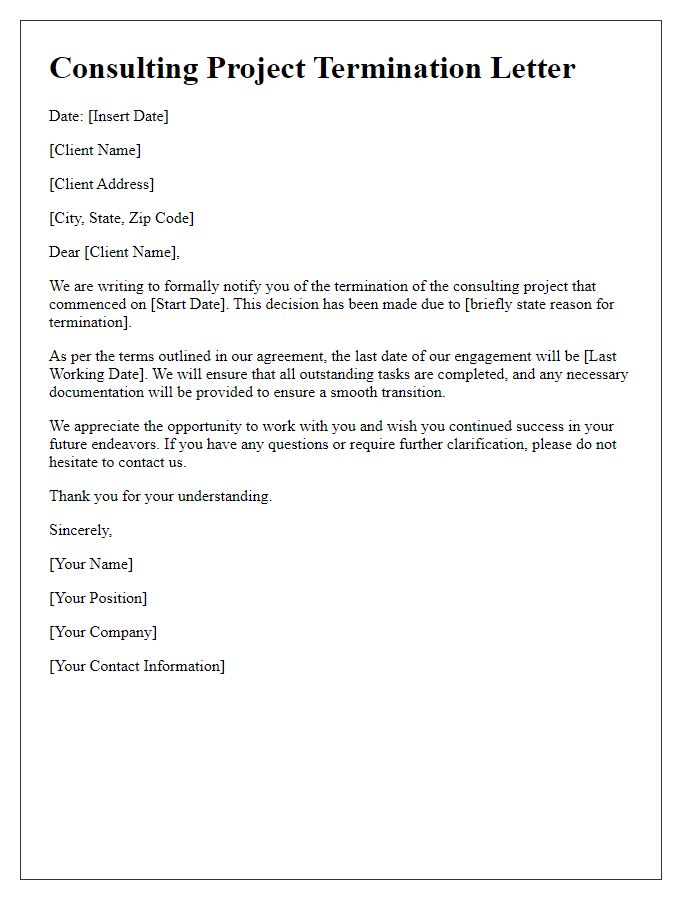
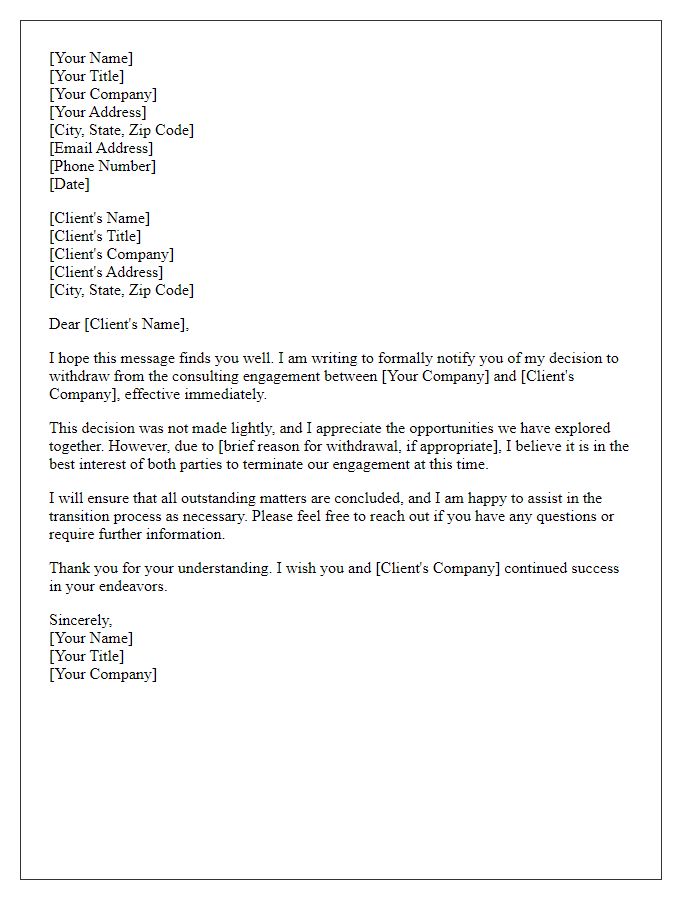
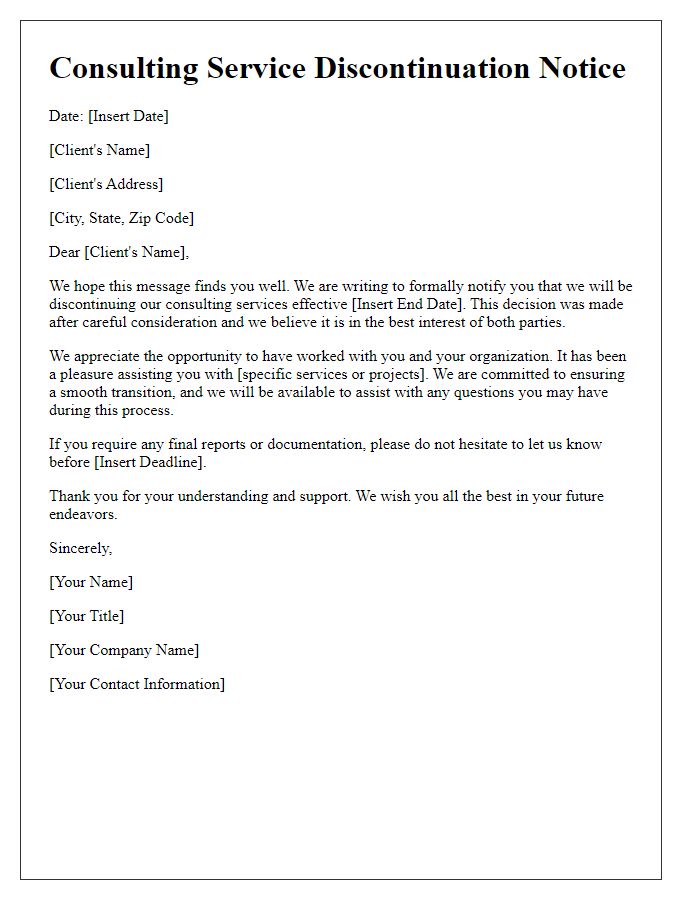
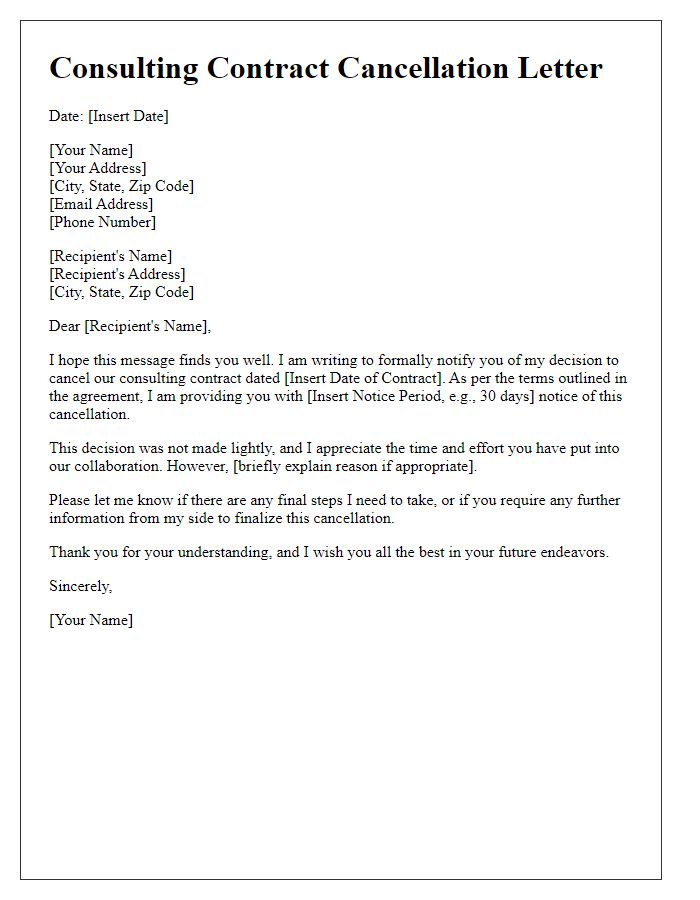
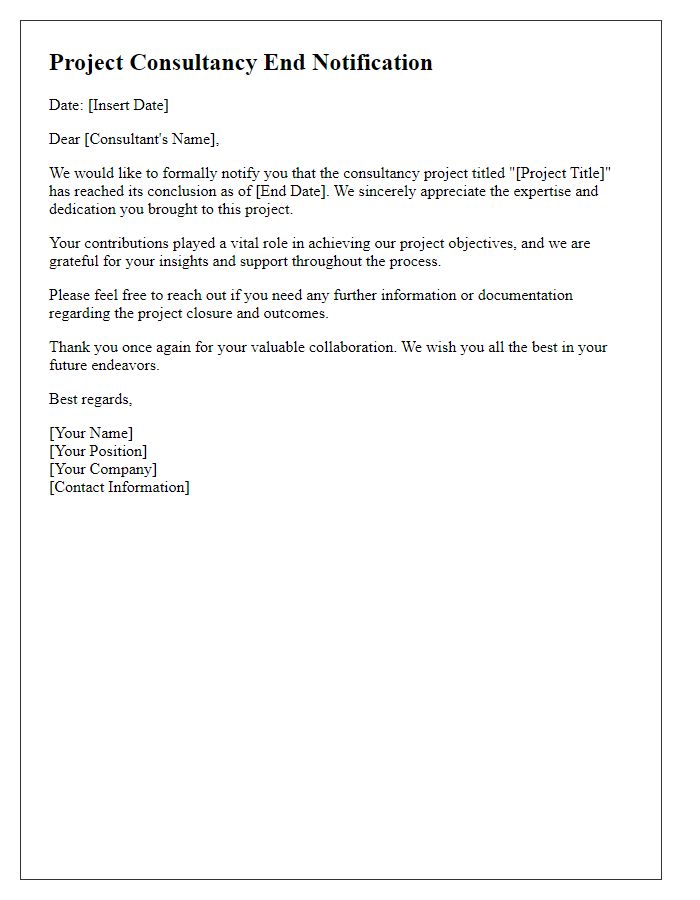
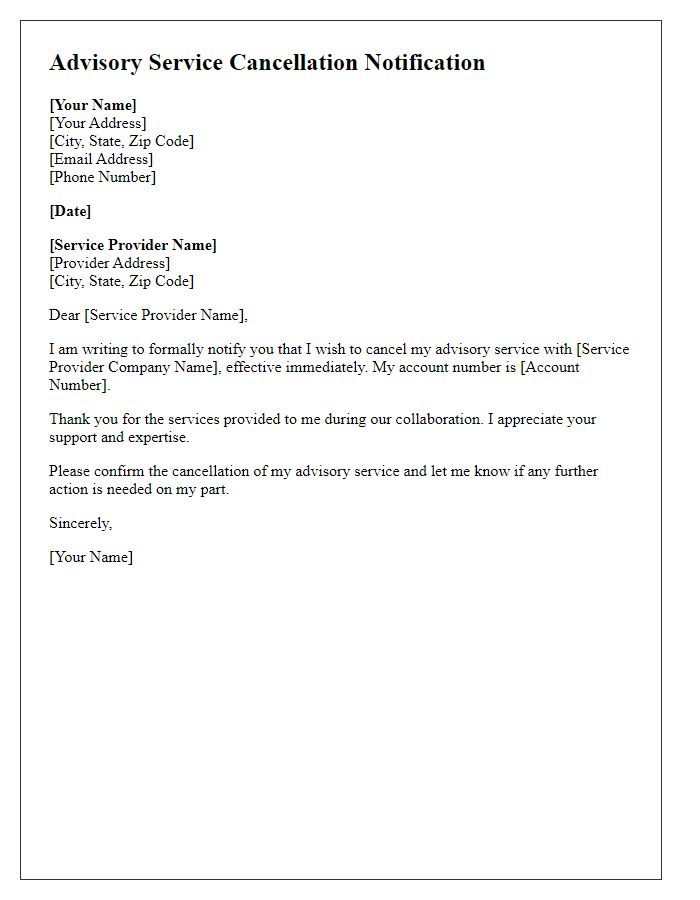
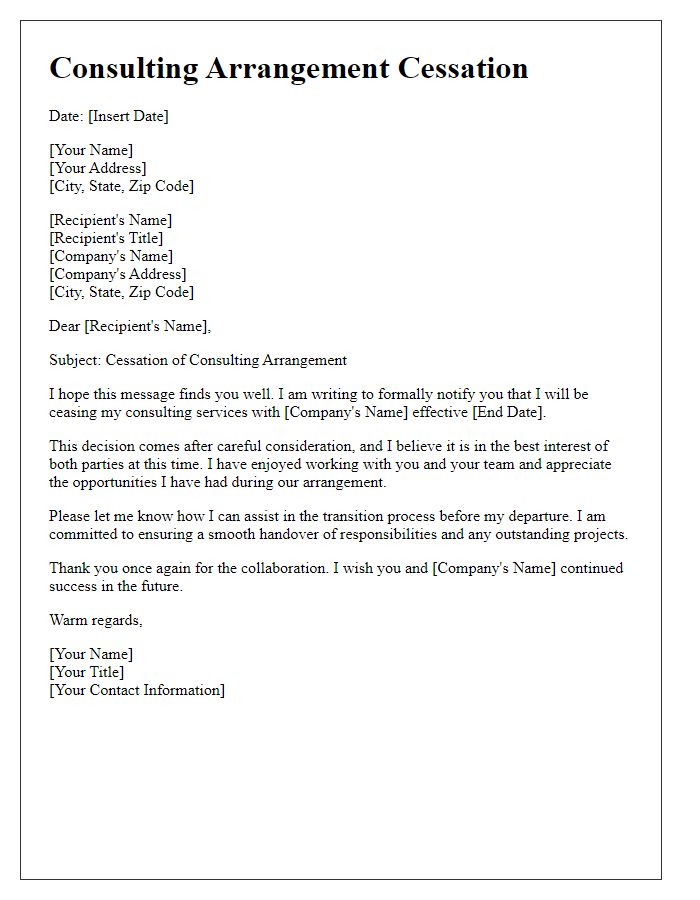
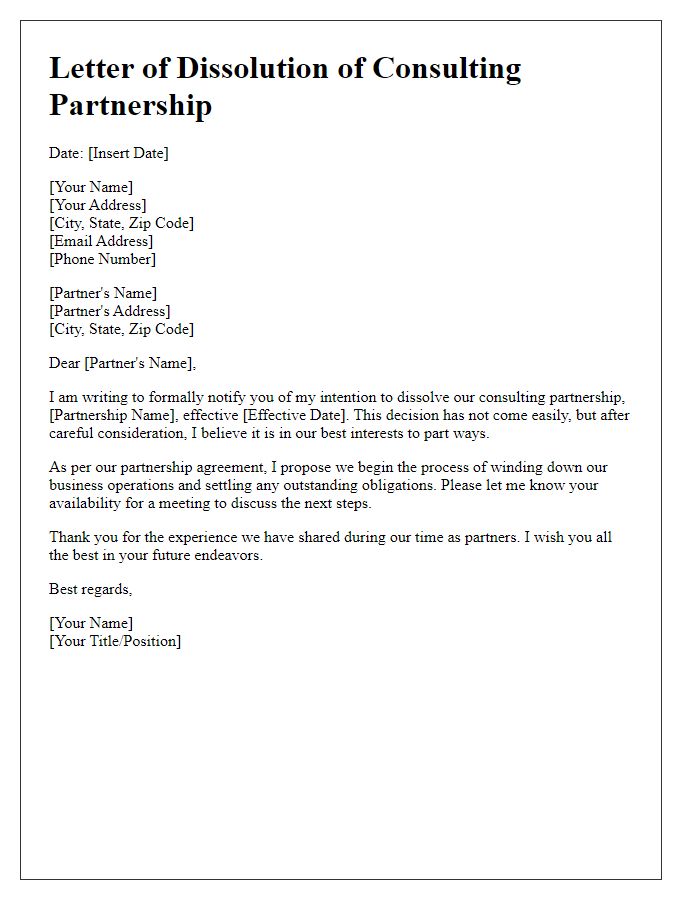
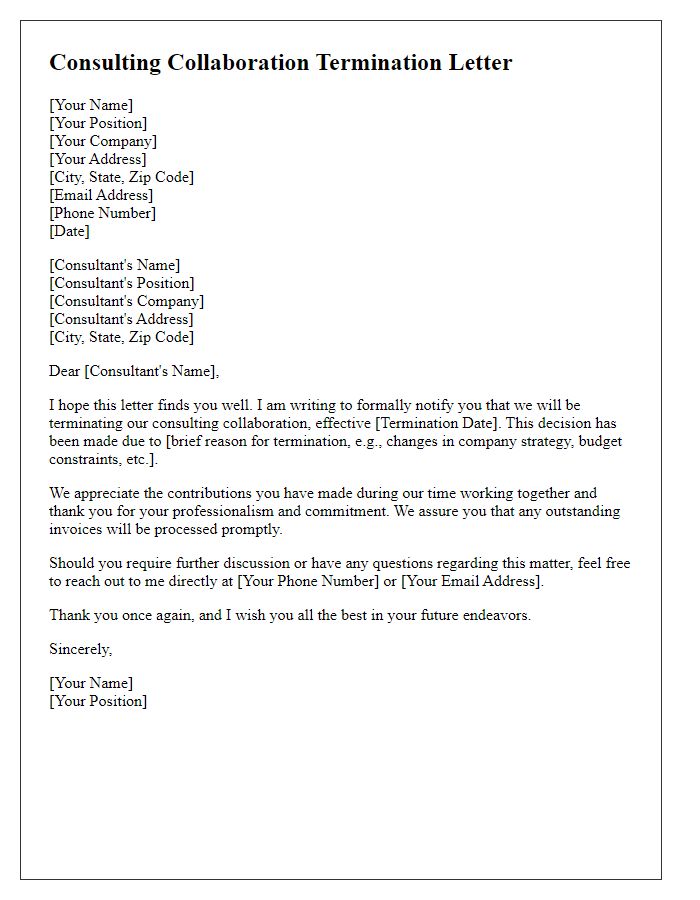
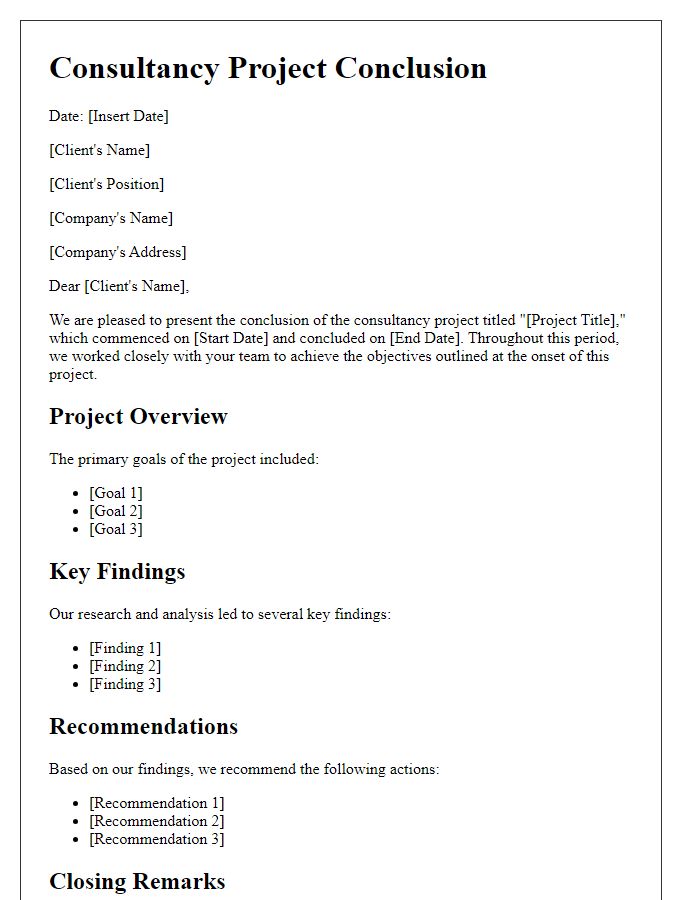


Comments